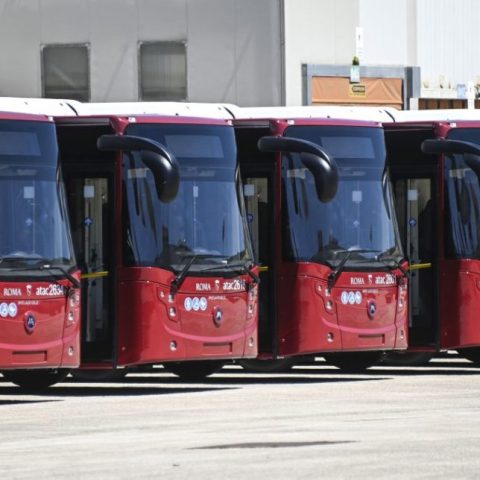Chinese Geely set to invest in Industria Italiana Autobus? Looks like a fake news…
Sources well informed on the facts, quoted by Italian trade media Autobusweb, deny the news about a board meeting held last week to evaluate the proposed partnership with the Chinese group Geely. In fact, there would be no real confirmation of what was reported.

It seemed done with the Chinese giant CCIG and instead to enter the share capital of the former Industria Italiana Autobus, now Menarinibus, is another Chinese giant: Geely Group. At least, this was the news circulating on local media during the weekend. Now, sources well informed on the facts, quoted by Italian trade media Autobusweb, deny the news about a board meeting held last week to evaluate the proposed partnership with the Chinese group Geely. In fact, there would be no real confirmation of what was reported.
A few steps back. Despite a quite good order book, the launch two years ago of the first electric 12-meter, the birth in Flumeri of the Industry 4.0 carbon free bus academy, the agreement with Nogebus (failed) to sell urban in Spain and Portugal, and the partnership with CaetanoBus for a hydrogen bus, Industria Italiana Autobus in the last few year has not been able to deliver vehicles. The company has been put on sale and a group of Italian companies provided a manifestation of interest to become shareholder in early 2024.
However, in June 2024, it was officially announced that Seri Industrial, led by Vittorio Civitillo, acquired a 98% stake in IIA, effectively becoming the principal owner of the company, that until then had been owned by state companies Invitalia (43%) and Leonardo (29%) with also Turkish OEM Karsan in the ownership structure with 28%.
Who is Geely Group
Geely Automobile Holdings Limited, founded in 1997, is a Hanhzhou-based automobile manufacturer, strong with 12 production facilities and more than 50,000 employees. Since late 2017, it has been a shareholder of Volvo Group and owner of Volvo Cars, with which it started the Lynk & Co joint venture, while since 2018 it has also been among the shareholders of Daimler AG. Since 2022, however, it has held 7.60 percent of Aston Martin.
In short, a strong and well-established entity in the automotive sector, which has within it the Farizon division, dedicated to the production of commercial vehicles: heavy trucks, light trucks and small trucks, buses, and vans.
As for buses, there are five models in the range: three Class I, one Class II and one Class III, all electric.
The next developments at Menarinibus include maintaining production at the Flumeri plant, where, according to the new ownership’s plans, 2.5 buses per day are to be built, while for the future and the fate of the 77 workers in Bologna, the Civitillo family (Seri Industrial, Menarinibus’s majority shareholder) would like the Emilian factory to focus exclusively on design and maintenance.







